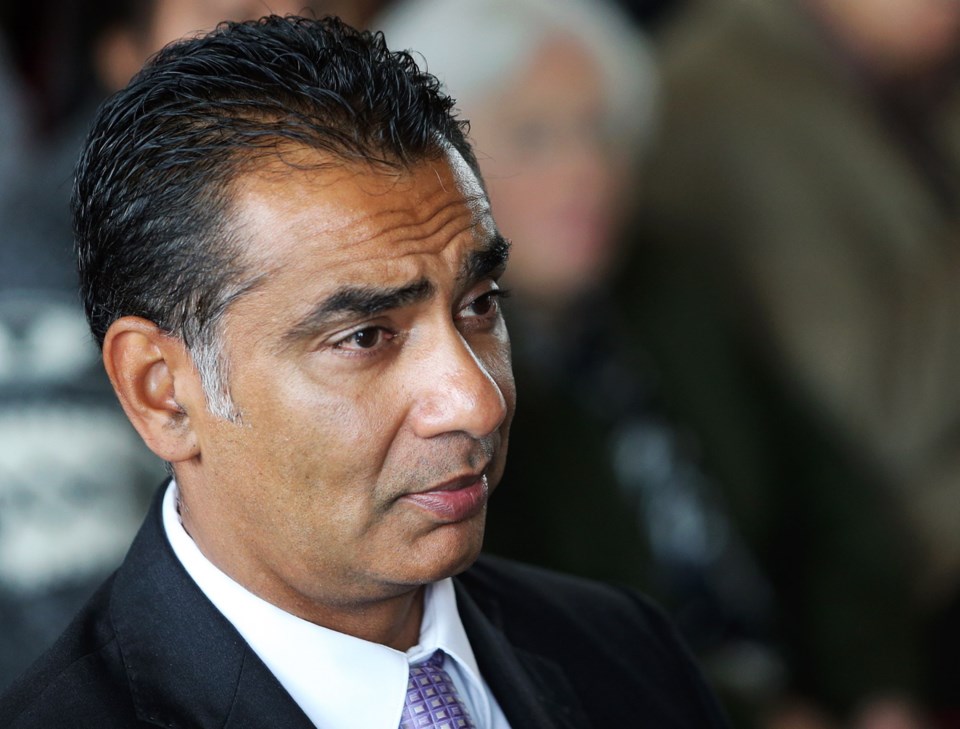 The high default rate on student loans to people in private training colleges was cited as one of the reasons the government is shutting down the self-regulating agency that oversees the industry and taking over that function itself.
The high default rate on student loans to people in private training colleges was cited as one of the reasons the government is shutting down the self-regulating agency that oversees the industry and taking over that function itself.
Advanced Education Minister Amrik Virk said he was disturbed the default rate was in the 17 to 18 per cent range, compared to seven to eight per cent in public institutions. The issue hasn’t been examined adequately, so “bringing it back into government will apply the additional rigour we can only do from our level.”
But there was an earlier court case related to student loans in private colleges, and the judge’s findings raise some questions about the background to the decision to fold the Private Career Training Institutes Agency into government. Because it suggests there wasn’t much rigour on display when the government moved earlier against two such colleges.
In brief, two of them sued the government — the Advanced Education Ministry and its student loans office — over how they were treated, and won overwhelmingly. The Automotive Training Centre in Surrey and the Academy of Learning in Vancouver had their designations stripped because of the default rates of their students. They went to court for a judicial review of the moves and the government’s case collapsed in short order. Not only did the government concede the main point at the outset, the judge penalized Virk’s ministry by awarding special costs to the two institutes.
The origins of the case were in a warning issued to one school that its default rate was over 28 per cent and it had to take action to bring it down. There was some back and forth on the issue, then the school lost its designation in 2011. The proprietor complained that it was not told a review was concluded, didn’t know it had to make representations and information on the case wasn’t shared with the institution. He argued that misinformation and incorrect calculations were used to suspend the school. The proceedings against the other college followed a similar track.
The judge found the school was “largely in the dark about how the decision had been made in the first instance.”
It hadn’t been allowed to make a submission before the ruling, and didn’t know about certain documents, or the existence of a committee that was an important part of the process.
As for the default rate, it was blamed on the fact training college student population is from a much higher-risk background than those at public institutions. There is a much higher percentage of students who are underemployed, underprivileged and facing multiple barriers to employment. The higher default rate is almost a given.
There was a subsequent argument about the judge’s decision on costs. The institutes won that as well. It’s believed to be the first time special costs have been levied against an administrative tribunal. They were levied partly because StudentAid B.C. cast itself in an adversarial role, said the judge. Instead of explaining the suspension order to the court, the official became an advocate for the faulty decision. The judge was troubled that when the outfit is obliged to reconsider its own decisions, its fairness and impartiality appeared compromised.
The costs order is being appealed by the government.
In the meantime, the core review looked into the regulation of such schools, where there have been complaints that school operators are passing judgment on themselves when complaints arise.
There was a flurry of activity in the sector. Virk ordered most of them to conduct annual audits — an expensive new requirement — and a number of new bylaws were passed to tighten up regulation.
(Coincidentally, the two successful plaintiffs were elected by the membership to the board of directors last month.)
Then Virk and Core Review Minister Bill Bennett concluded oversight of such schools will be brought in-house. They suspended the board and named a senior bureaucrat to start dissolving the agency, although it will take at least nine months to get the legislation done. It was never directly responsible for student loans, but the default rate seems to be in the background of the decision to take over the responsibility.
If they’re planning a crackdown, they’ll have to be more careful than they have been in the past.



